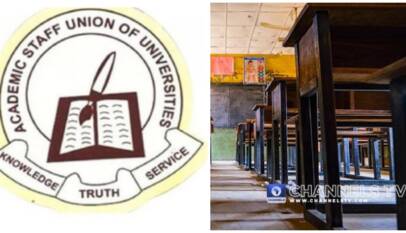By Deborah Nnamdi
The Minister of Education, Dr. Tunji Alausa, has linked the high failure rate in the 2025 Unified Tertiary Matriculation Examination (UTME) to the success of anti-exam malpractice strategies, particularly within the Joint Admissions and Matriculation Board (JAMB).
His comments follow JAMB’s release of troubling statistics showing that out of 1,955,069 candidates, only about 420,000 scored above 200, with over 78% failing to cross the 200-mark threshold.
Speaking during an interview on Channels Television’s Morning Brief on Tuesday, Dr. Alausa explained that the decline in performance reflects JAMB’s effective clampdown on cheating through its stringent computer-based testing (CBT) protocols.
“This is a serious issue, but it also shows that exams are now being conducted properly,” he said. “With JAMB’s secure CBT system, cheating has been largely eliminated—unlike in WAEC and NECO exams.”
Dr. Alausa revealed that upon assuming office, the government undertook a broad review of Nigeria’s examination frameworks. As part of the reform, he announced that WAEC and NECO will begin implementing CBT for objective sections starting November 2025, with full CBT—including essay components—set for rollout by May/June 2026.
He emphasized the role of technology in combating exam malpractice, stating, “So-called ‘miracle centers’ have become widespread, and that is unacceptable. Students cheat during WAEC and NECO but are caught off guard when faced with JAMB, where such practices are nearly impossible. That’s the gap we’re now witnessing.”
Highlighting the broader implications, Alausa noted the negative impact of cheating on honest students: “If I know my classmates have the questions beforehand, why would I still study hard? That’s how we end up discouraging the diligent ones. We must put an end to that cycle.”
When asked if the poor UTME results reflect a deeper academic decline or just stricter enforcement, the minister pointed to both factors—but emphasized that entrenched malpractice remains the central issue.
“We’re working to improve teaching quality and expanding online learning from primary to secondary levels,” he said. “But the biggest challenge is still the widespread cheating in WAEC and NECO. JAMB has become nearly fraud-free, but the others lag. Our youths have the talent—it’s the system that undermines them. We’re committed to changing that.”
































